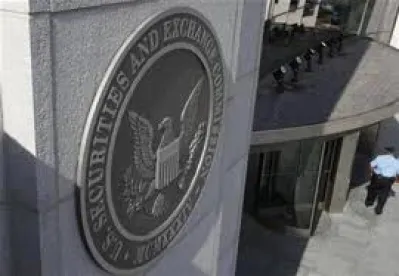Record whistleblower awards, an increasing number of internal investigations partly arising out of the #MeToo movement, an expansion of the role of company boards, and the growing importance of corporate social responsibility all shaped corporate governance in 2018. This is our review of these trends.
Record Whistleblower Tips and Awards, Possible Changes
Companies and regulatory agencies reported a rise in whistleblower tips in 2018. The Securities and Exchange Commission (SEC) Whistleblower Program had its largest annual payout in history, $168 million. The Program also reported its largest single payout, $84 million. Many of those receiving rewards in 2018 were company outsiders and non-U.S. residents.
Since its inception, the Program has awarded whistleblowers $326 million and has recovered $1.7 billion for the U.S. Treasury. Investors also have gained an estimated $432 million.
In 2018, the SEC proposed amendments to the Program rules. Significantly, the proposed amendments, which are currently in the comment phase, are designed to provide the SEC greater discretion with respect to awards at extremes of the Program. Under the amendments:
- The SEC will have enhanced ability to limit the very large awards and increase the modest awards on collected monetary sanctions over $100 million and awards under $2 million.
- The interpretive guidance will define “original information” and clarify the types of government actions that can qualify for whistleblower awards.
Internal Investigations
In the wake of the #MeToo movement and with the continuing rise in whistleblower claims, companies performed more internal investigations in 2018 than they have in many years. Sexual harassment complaints, much like whistleblower complaints, often are reported internally first, thus triggering a company’s obligation to investigate and take remedial action, if necessary.
Data on sexual harassment enforcement from the Equal Employment Opportunity Commission (EEOC) backs this up. In fiscal year 2018, charges filed with the EEOC alleging sexual harassment increased by more than 12 percent from fiscal year 2017.
Also in 2018, the Department of Justice (DOJ) announced a significant policy shift in its enforcement strategy. According to the DOJ, going forward, companies must reveal all relevant facts about responsible individuals in order to trigger the False Claims Act’s reduced damages provision. Identifying and disclosing information about individuals who were involved in potential fraud necessarily will involve effective internal investigations.
The Emerging Role of the Board of Directors
The number of lawsuits brought against boards and individual board members for breach of fiduciary duty, among other things, has increased sharply in recent years. Government enforcement and prosecution of violations from perceived board dereliction is also on the rise. As a result, in 2018, board governance and scrutiny emerged as a key compliance component. More and more boards are taking an active role in establishing:
- Compliance programs;
- Cybersecurity and privacy safeguards; and
- Whistleblower protection measures.
Some states are even tackling issues of diversity in board composition. In 2018, California passed a law mandating that publicly traded companies incorporated in California, as well as foreign corporations headquartered in California, have at least one female director by the end of 2019. Depending on board size, the California law will mandate additional representation by 2021.
Corporate Social Responsibility
Another trend in 2018 was the growing importance of corporate social responsibility (CSR) initiatives to investors, shareholders, and consumers. Investors are increasingly interested in CSR performance of target firms as a way to identify economic performance potential and to flag potential risks.
Entities are proactively identifying and addressing their legal, financial, operational, and reputation risks, and they are particularly focused on CSR risks through proactive initiatives or reactive responses to specific incidents. Companies and boards are investing in CSR programing as an integral element of company risk assessment and compliance programs and advocating public reporting of CSR initiatives. This is serving as both a differentiating and value-enhancing factor.





 />i
/>i

